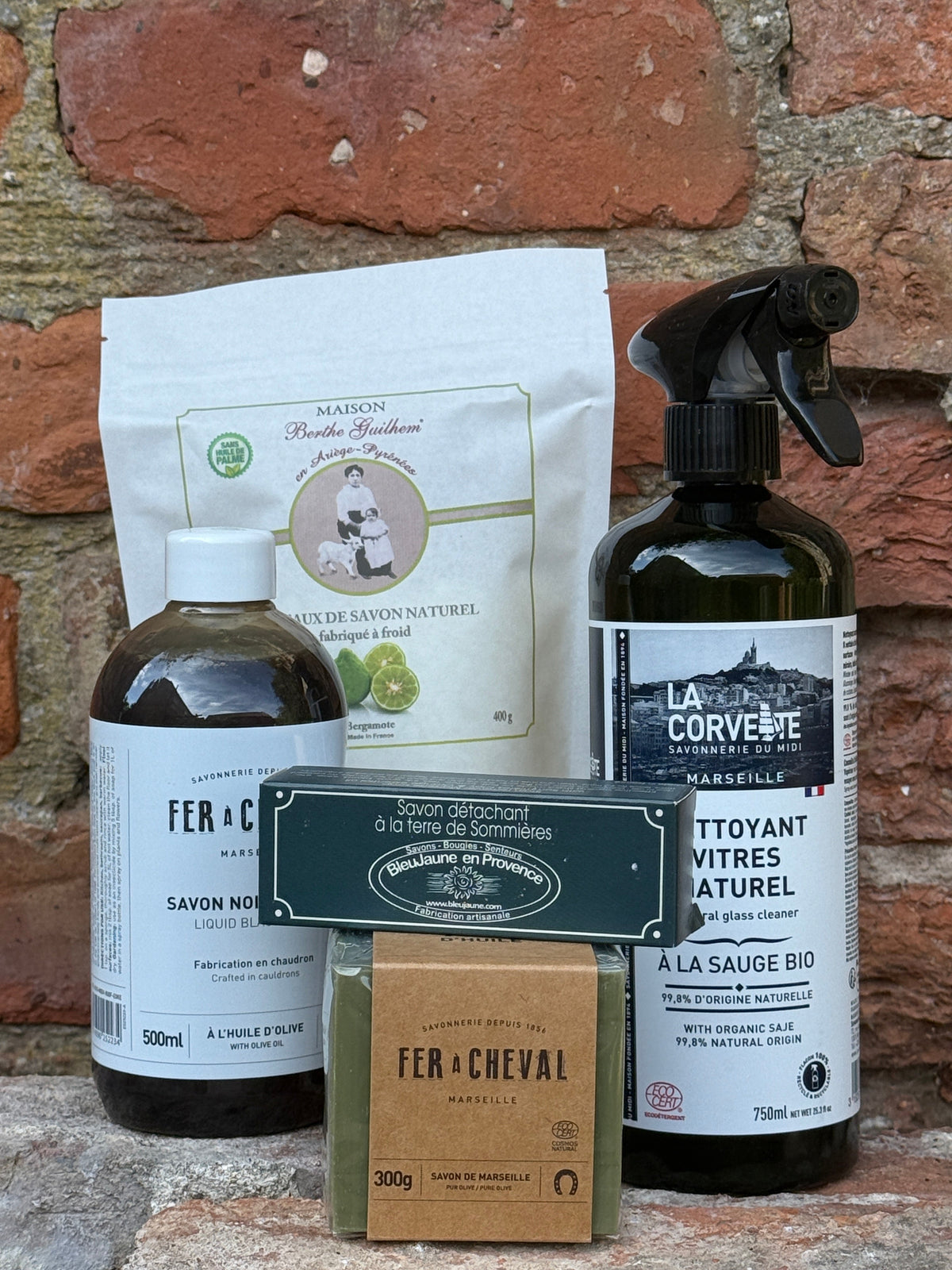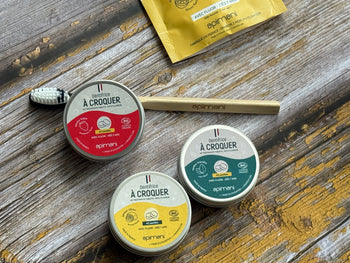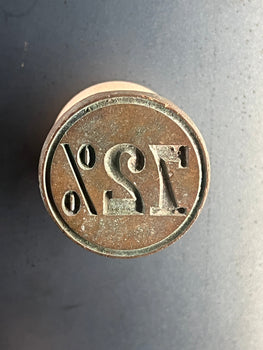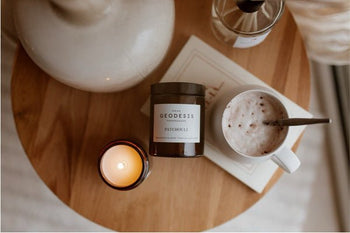
Gifting couldn't be easier
Add a gift message to be emailed to when their parcel arrives, or at a time of your choice.
In science, a chemical is simply any substance with a defined composition. That means water, olive oil, and salt are all chemicals, just as bleach or ammonia are. Even the air we breathe is made up of chemicals like nitrogen and oxygen.So technically, everything you use — from a Marseille soap cube to a cup of tea — is made of chemicals.
The word “chemical” has become one of the most misunderstood terms in modern life. In shops across the UK, you’ll see labels boasting “chemical-free,” “no nasties,” or “all natural,” we use these at times ourselves. But here’s the thing: everything is a chemical. Water, oxygen, salt, olive oil—these are all chemicals. So why has the term become so loaded, and how do you know which chemicals are good for you and the planet, and which are best avoided?At French Soaps we believe that education is the first step towards sustainable, healthy shopping. This article uncovers what “chemical” means, how the term is misused, and what you should look for when buying eco-friendly soaps, body care, and cleaning products.
The phrase “chemical-free” is misleading. It’s impossible for any soap or cosmetic to be free from chemicals, because everything is chemical by nature.
What brands usually mean is that their products are free from harmful synthetic chemicals. In other words, they avoid man-made additives that may be:
Harsh on skin (like sulfates)
Irritating or allergenic (like parabens or certain preservatives)
Harmful to the environment (like phosphates or microplastics)
Scientifically, a chemical is simply a substance made of matter: atoms and molecules that interact with each other. Water (H₂O), carbon dioxide (CO₂), and sodium chloride (table salt) are all chemicals.
So why the confusion?
In everyday speech, “chemical” has become shorthand for synthetic, artificial, or harmful substances.
In reality, the word covers everything, both natural and man-made.
This creates a dangerous myth: that natural = safe and chemical = harmful. But the truth is more nuanced.
Natural toxins exist (arsenic, cyanide, poison ivy).
Man-made chemicals can be incredibly safe and beneficial (vitamin supplements, life-saving medicines).
Walk into any UK supermarket or browse online beauty stores and you’ll see the buzzword: “chemical-free.” It sounds reassuring, but it’s scientifically meaningless.
A bar of soap, whether handmade or factory-produced, is always made of chemicals.
What brands really mean is “free from certain synthetic additives.”
This matters because misleading marketing distracts from what consumers actually need to know: which chemicals are safe, and which are best avoided in daily use.
Not all chemicals are bad—in fact, life depends on them. Here are a few essential “good” chemicals found in high-quality soaps like those at French Soaps UK:
Water (H₂O): Universal solvent and skin hydrator.
Sodium chloride (salt): A natural preservative and stabiliser.
Glycerin: A moisturising by-product of soap-making that hydrates skin.
Olive oil (oleic acid compounds): Rich in antioxidants, gentle on sensitive skin, and biodegradable.
Sodium hydroxide (lye): Essential in the soap-making process. It reacts with oils to create soap and glycerin, and none remains in the finished bar.
These chemicals are not only safe but necessary to create effective, gentle, and eco-friendly cleansing products.
Here’s where the caution comes in. Many mass-produced soaps, shower gels, and detergents contain problematic synthetic chemicals that harm your skin and the environment.
Sodium Lauryl Sulfate (SLS): Creates foam but strips skin’s natural oils.
Sodium Laureth Sulfate (SLES): Softer than SLS but often contaminated with carcinogenic by-products.
Parabens: Linked to hormone disruption in animal studies.
Triclosan: Banned in several countries for contributing to antibiotic resistance.
Synthetic dyes and fragrances: Can trigger allergies and release volatile organic compounds (VOCs).
Microplastics: Found in exfoliants and some “moisture beads”—polluting oceans and harming wildlife.
These are the “bad chemicals” that give the word its negative reputation. They’re common in cheap, mass-market soaps and cleaning products, and they’re the reason so many shoppers are turning back to traditional, natural formulations.
Traditional Savon de Marseille soap, sold at French Soaps UK proves that not all chemicals are created equal.
Made with just olive oil, water, salt, and lye, this centuries-old formula produces a biodegradable, long-lasting, multipurpose soap.
No parabens, no microplastics, no harsh surfactants.
The chemistry is simple, transparent, and proven safe.
Soap flakes, another French tradition, also highlight the power of “good chemistry.” They provide a plastic-free, chemical-safe alternative to laundry detergents full of enzymes, phosphates, and artificial fragrances.
By choosing these products, you’re not avoiding chemicals—you’re choosing the right chemicals.
Every chemical we use eventually enters the environment, whether washed down the drain or discarded in packaging. This makes the distinction between good and bad chemicals even more urgent.
Biodegradable chemicals (like olive oil–based soaps) break down naturally without harming ecosystems.
Persistent chemicals (like phosphates and synthetic detergents) accumulate in waterways, disrupting aquatic life and contaminating food chains.
By switching to traditional soaps, UK shoppers can significantly reduce chemical pollution. For example:
One cube of Savon de Marseille can replace multiple bottles of shower gel, hand wash, and household cleaners.
Soap flakes can replace liquid laundry detergents and reduce plastic packaging by hundreds of bottles per household per year.
This is chemistry with conscience.
Marketers know that fear sells. The term “chemical-free” taps into public anxiety about toxins, even if it’s misleading. But fear-driven shopping doesn’t lead to better choices.
Instead, education empowers consumers:
Understand what chemicals are.
Learn which to avoid.
Choose safe, transparent, and eco-friendly formulations.
This is why at French Soaps UK, we don’t hide behind buzzwords—we explain our ingredients clearly, so you know exactly what you’re putting on your skin and into your home.
| Good Chemicals (Safe, Essential, Biodegradable) | Bad Chemicals (Harsh, Polluting, Problematic) |
|---|---|
| Water (H₂O) | Sodium Lauryl Sulfate (SLS) |
| Olive oil (oleic acid) | Sodium Laureth Sulfate (SLES) |
| Glycerin | Parabens |
| Sodium chloride (salt) | Triclosan |
| Sodium hydroxide (reacts away in soap) | Synthetic dyes & fragrances |
| Natural plant oils (coconut, laurel, shea) | Microplastics |
When you see “chemical” on a label, don’t panic—ask questions.
Which chemicals are included?
Are they biodegradable?
Are they safe for sensitive skin?
Is the company transparent about sourcing and production?
If the answer is vague, be cautious. If the answer is simple—like “olive oil, water, salt, lye”—you’ve found a product that respects both your health and the planet.
The word “chemical” doesn’t have to be scary. It simply means matter—the building blocks of life. The real difference lies in which chemicals you invite into your home.
At French Soaps UK, we so use “free from toxic chemicals” because our soaps are crafted with natural oils, clays, and essential oils — not harsh synthetic ingredients. We have also been known to use ' chemical free' when space is tight, we don't like using it but sometimes its a quick way to communicate.
By choosing traditional, natural soaps from French Soaps UK, you’re buying safe, effective, biodegradable chemistry that has stood the test of time. You’re also rejecting the harsh, synthetic, and polluting chemicals that dominate much of today’s mass-market products.
This isn’t about avoiding chemicals—it’s about making chemicals work for you, not against you.
©️ French Soaps UK 2025
If you would like help shopping this article, or have further product or ingredient questions then please contact us and we will be happy to help. E. bonjour@frenchsoaps.co.uk T. 01423 803080
Telephone or Whats App: 01423 803080
Email: bonjour@frenchsoaps.co.uk
Social: @FrenchsoapsUK
Address: Unit 14 Ousegill Business Park, Carr Side Road, Great Ouseburn, North Yorkshire, YO26 9AE
Sign up for our newsletter and get all the latest news, offers and more delivered straight to your inbox. You can unsubscribe at any time. By 'submitting' you are agreeing to our T&C's and Privacy Policy.
Gifting couldn't be easier
Add a gift message to be emailed to when their parcel arrives, or at a time of your choice.



